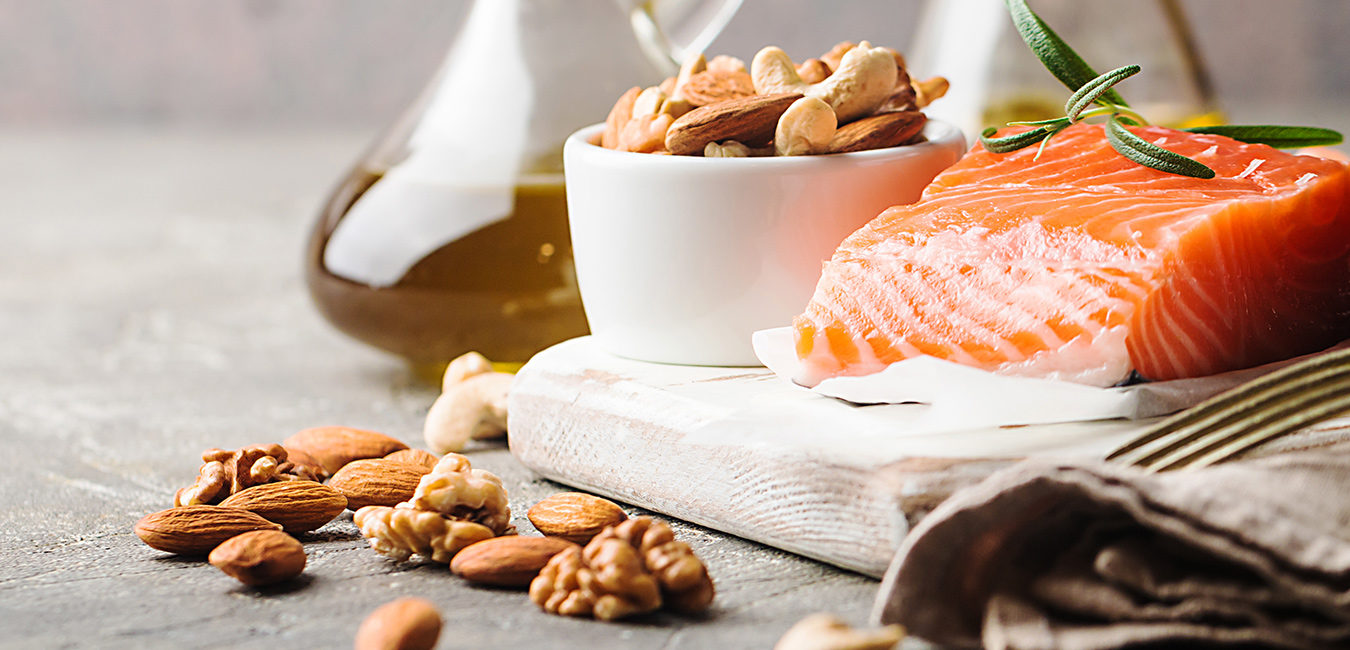Inflammation is not always a bad thing. When you cut yourself or have a splinter or get an infection, your body fights off any harmful invader with inflammation. So, short term inflammation is part of the normal healing process. But if there is a long-term continuing presence of inflammation, it often can cause a problem that worsens the effects of heart disease. The foods you eat can help to reduce this harmful process.
Inflammation in blood vessels happens when the waxy substance known as plaque builds up inside the walls of arteries. But sometimes the plaque breaks open, causing the body to send out chemicals and white blood cells to attack this harmful material and seal it off with a clot of blood. If the blood clot is large, it may block the artery completely and cause a heart attack or stroke.
A healthy diet can protect your heart in many ways. Some foods are better than others in reducing dangerous inflammation. Here are a few top choices to add to your diet:
Fatty fish
Salmon, sardines, mackerel, and other types of fatty fish contain high amounts of omega-3 fatty acids called EPA and DHA that are good at fighting inflammation. Yet research suggests that Americans are not getting nearly enough of them in the diet. Eating at least 2 fish meals a week will help you to get this benefit.
Nuts
Fish aren’t the only sources of heart-healthy omega-3 fatty acids. They’re also found in nuts, including almonds and walnuts. A handful a day is a healthy way to snack. You may want to ask your provider for a simple blood test to find out if you have a healthy amount of omega-3 fatty acids present.
Extra virgin olive oil
A big part of the Mediterranean diet, extra virgin olive oil has many health benefits, including reducing the inflammation that leads to heart disease. One study found that when people got about 3 tablespoons of this oil each day, levels of C-reactive protein (CRP), a measure of inflammation in the body, dropped significantly. (Learn about tests for CRP here.)
Leafy greens
Spinach, kale, and collards are chock full of vitamins, minerals and phytonutrients—chemicals with special nutritional benefits—that may help reduce inflammation. Broccoli, Brussels sprouts, cabbage, and similar vegetables also contain something called sulforaphane, which is particularly good at fighting inflammation. Aim for 2 servings a day.
Cherries
Cherries and other berries contain substances called antioxidants that help to calm inflammation. When people in one study ate 45 Bing cherries every day for about a month, their levels of CRP fell by 20%. (Learn about other fruits that can reduce inflammation here.)
Dark chocolate and cocoa
It’s hard to believe, but a bar of dark chocolate is packed with healthful chemicals called flavanols that work against inflammation. In fact, research shows that cocoa can help keep the cells that line artery walls healthy. Be sure to choose chocolate with 70% or more cocoa—and enjoy it in moderation.
While you are adding foods that fight inflammation to your diet, consider reducing those that make it worse. These include red meat, refined carbohydrates like white bread and pasta, fried foods, and products with added sugars, such as sugary drinks. Even small changes can make a big difference in the health of your heart and blood vessels.
Testing provided by Cleveland HeartLab/Quest can help you find out if inflammation is occurring in your body. Our Know Your Risk™ program explains how biomarkers and other factors may be increasing your chances for a heart attack or stroke.

